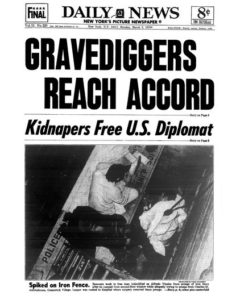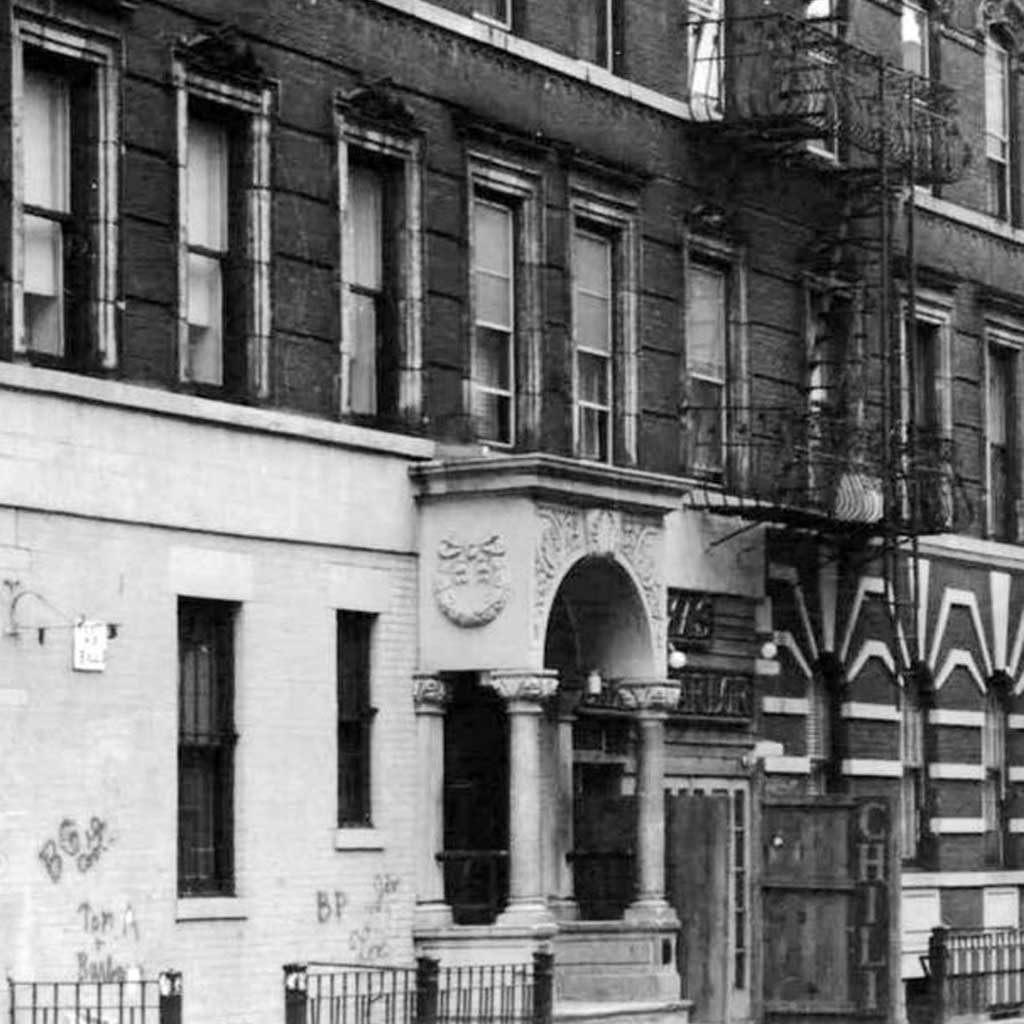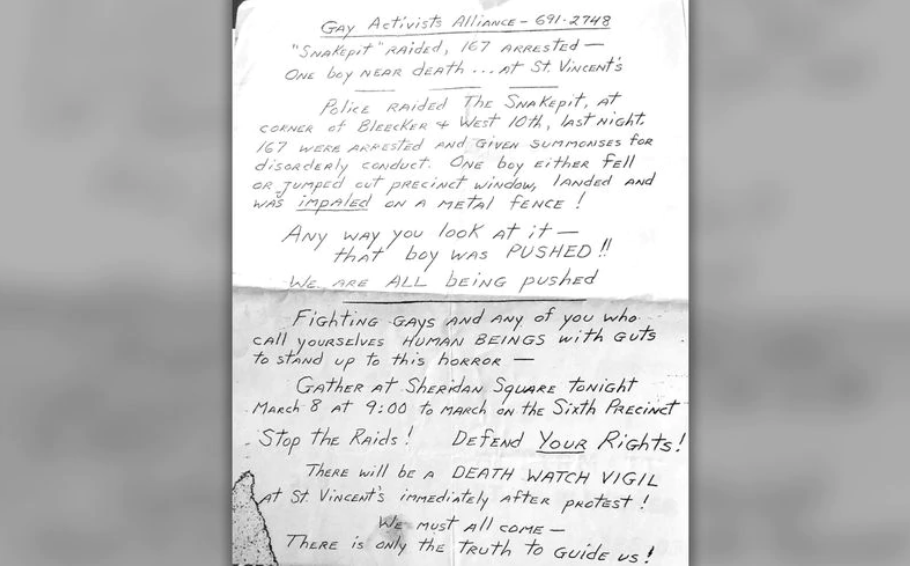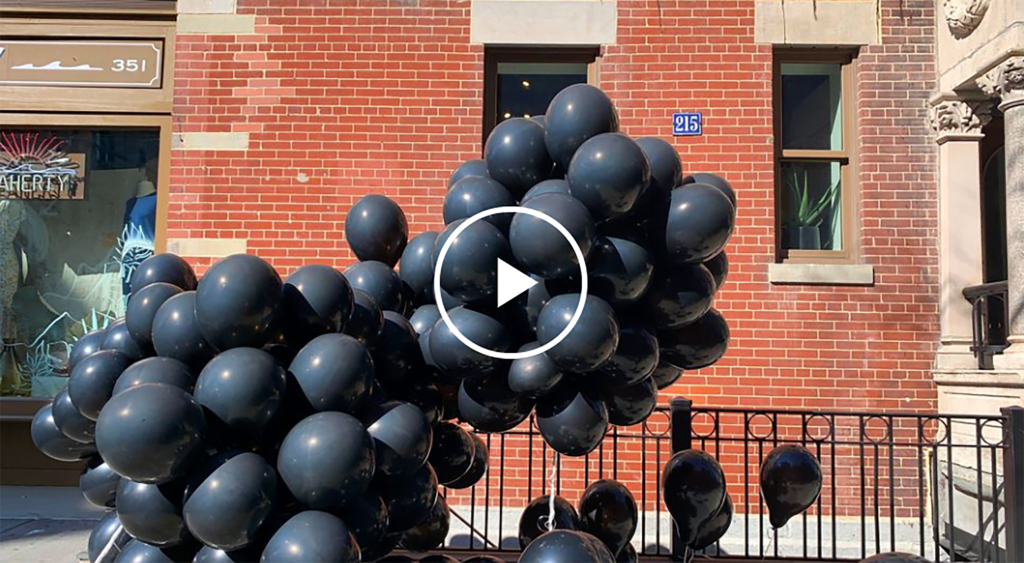Forgotten but pivotal moment in gay-rights movement took place 50 years ago in NYC
20190307
By: MURI ASSUNÇÃO

While millions gathered in New York City in June to celebrate 50 years of the Stonewall uprising, there’s surprisingly little attention paid to confrontations between the NYPD and the LGBTQ community that took place after those six days in the summer of 1969.
An equally important episode took place less than nine months after those culture-changing summer days.
The Snake Pit raid, a NYPD offensive on LGBTQ patrons of another another gay-run bar — located just six blocks from the Stonewall Inn — ended with 167 arrests, a quick response by some recently formed queer rights organizations, a march of about 500 angry protesters, as well as plenty of mainstream media coverage, including a dramatic Daily News cover of a 23-year-old man who had jumped off a police precinct and ended up impaled on a fence.
The headline read “Spiked on Iron Fence.”
According to Ken Lustbader, a historic preservationist and the co-founder of the NYC LGBT Historic Sites Project, the Snake Pit was an after-hours bar that occupied the basement space under 215 W 10th St. in Manhattan’s Greenwich Village.

In the early hours of March 8, 1970 — 50 years ago Sunday — the bar was raided by Seymour Pine, the same lieutenant who’d raided the Stonewall Inn a little over eight months earlier.
Fearing an episode like the six-day Stonewall uprising, Pine took a more drastic approach.
“He didn’t want to have another Stonewall and didn’t want people milling around on the streets,” Lustbader told the Daily News on Friday. “So basically they took everyone out of the bar — there were 167 men from the primarily adult male gay bar — and took them to the 6th precinct, which was at that time on Charles St., a block and a half away.”

One of those booked was a 23-year-old Argentinian immigrant, Diego Viñales, who “got apparently scared and jumped out the window and was impaled on the fence, which the Daily News photograph shows,” Lustbader added.
Unable to get Viñales off the fence, the NYPD called the fire department to help. After word got out, some 500 protesters gathered to march from Christopher Park, now Stonewall National Monument, to the police station later that afternoon.
Viñales was finally cut loose and taken to nearby St. Vincent’s Hospital, where he spent several days, but ultimately survived and moved back to Argentina.

The NYPD decided to arrest and book Snake Pit patrons as a way to avoid mayhem and to stop a potential Stonewall 2.0. Instead, the arrests mobilized early queer liberation groups that had formed and gained strength after the uprising of 1969.
Some of the arrested men found an empty police office at the stationhouse and started making phone calls.
“That’s when the GAA [Gay Activists Alliance] along the Gay Liberation Front, which was formed in July, 1969 right after Stonewall, got together and organized a march with about 500 people,” said Lustbader.
A flyer put out by the GAA calling for the gathering of the LGBTQ groups read, in dramatic handwritten form, “One boy either fell or jumped out precinct window, landed and was impaled on a metal fence! Any way you look at it — that boy was PUSHED!! We are all being pushed.”
Although the Snake Pit raid is rarely brought up in conversations about the foundations of early queer liberation movement, “it’s a really important pivotal point [in LGBTQ history], which was picked up with good press as opposed to the bad press that Stonewall got in many cases.”
The little-known raid also ended up adding some high-profile voices to the growing list of activist fighters for LGBTQ rights.
Morty Manford was eating a sandwich at Mama’s Chicken Rib, a popular gay coffee shop on Greenwich Avenue, when he saw “hundreds of people with protest signs,” and decided to join in.
“The purpose of this march was to protest police conduct at the raid of a bar called the Snake Pit,” Manford told journalist Eric Marcus in 1989, an interview featured in an episode of the popular “Making Gay History” podcast.

“The moral outrage was certainly very personal in my own heart. At the conclusion a number of people all went over to the Gay Liberation Front headquarters at 14th Street and 6th Avenue,” he said. That’s when he learned about the weekly meetings of the Gay Activists Alliance, which became his primary activist involvement.
Vito Russo a co-founder of ACT UP and GLAAD, told Marcus that “for the first time the organized response reached me on a gut level. And that was the following Thursday when I went to my first Gay Activists Alliance meeting.”
The history of the LGBT rights movement in New York City
On Feb. 29, the NYC LGBT Historic Sites Project, which has two entries on its website linked to event — one for the former location of the Snake Pit Bar and one for the former 6th Police Precinct Station House — honored all the men arrested that night by bringing 167 balloons to the location.
